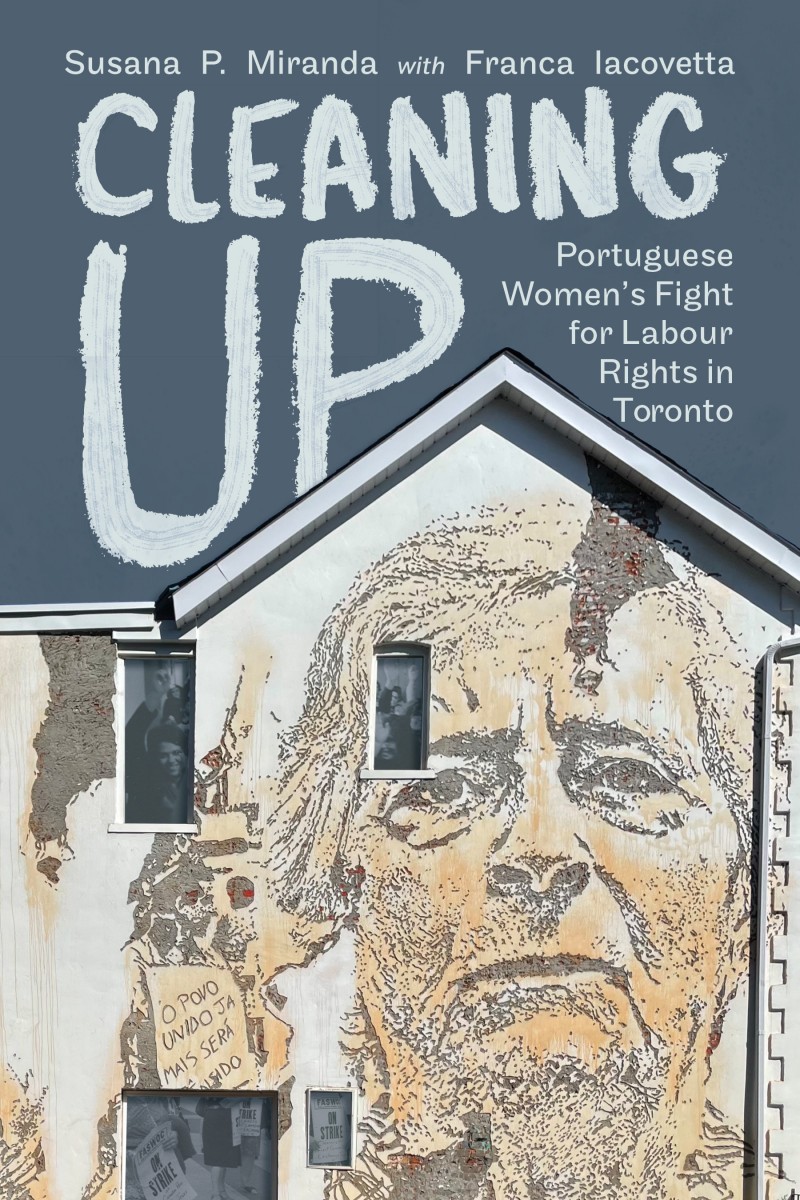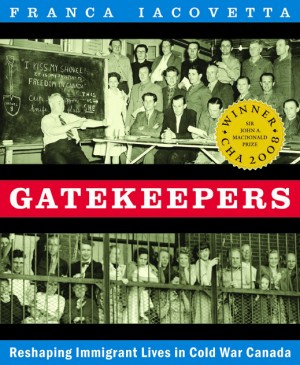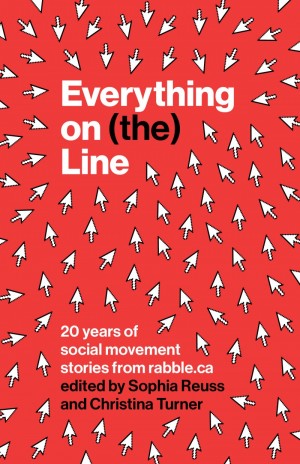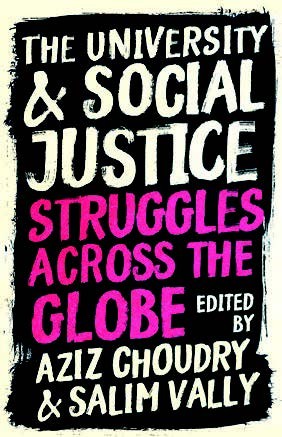
Cleaning Up
Portuguese Women’s Fight for Labour Rights in Toronto
- Leo Panitch Book Prize, 2023 (Winner)
- Legislative Assembly of Ontario Speaker's Book Award, 2023 (Short-listed)
- The Mayworks Activist Award for Excellence in Contribution to Labour Arts, 2024 (Winner)
- Alison Prentice Award, 2024 (Winner)
This fascinating book uncovers the little-known, surprisingly radical history of the Portuguese immigrant women who worked as night-time office cleaners and daytime “cleaning ladies” in postwar Toronto.
Drawing on union records, newspapers, and interviews, feminist labour historians Susana P. Miranda and Franca Iacovetta piece together the lives of immigrant women who bucked convention by reshaping domestic labour and by leading union drives, striking for workers’ rights, and taking on corporate capital in the heart of Toronto’s financial district. Despite being sidelined within the labour movement and subjected to harsh working conditions in the commercial cleaning industry, the women forged critical alliances with local activists to shape picket-line culture and make an indelible mark on their communities.
Richly detailed and engagingly written, Cleaning Up is an archival treasure about an undersung piece of working-class history in urban North America.
Praise
“Invisible no more! Through the caring labours of feminist historians Susana P. Miranda and Franca Iacovetta, the earthy humour and sassy militancy of Portuguese immigrant women office and house cleaners emerges. Their workplace activism shook Toronto’s neoliberal establishment in the 1970s and 1980s, belying stereotypes of passivity and patriarchal oppression, while fighting against discrimination and exploitation. More than a recovery of heroines, this labour history underscores the perils of contracting out and the promise of grassroots coalitional struggle against bosses—and union bosses.”
– Eileen Boris, author of Making the Woman Worker: Precarious Labor and the Fight for Global Standards, 1919–2019
“Cleaning Up disproves the widespread historical image of migrant women from southern Europe as docile housewives and shows instead a group of decisive women workers who changed collective agreements and labour rights. It is a powerful story and a hopeful reminder of what workers can achieve when they organize and fight exploitation. Cleaning Up is a must-read for activists and labour historians.”
– Silke Neunsinger, Swedish Labour Movement Archives and Library and Uppsala University
“This volume is an outstanding and rich history of the labour struggles and successes of Portuguese immigrant women workers in the cleaning industry in Toronto. Women workers come alive on these pages through deep and poignant analyses of their courage and claims for dignity and self-worth. Cleaning Up has vital comparative implications today for those researching migration, gender, and work. If you want to better understand how forms of employment shape the gendered possibilities of resistance, you must read this book.”
– Wenona Giles, Fellow of the Royal Society of Canada, professor emerita, Anthropology, York University
“Cleaning Up brilliantly documents the strength and determination of Portuguese/Azorean women cleaners of some of the most prestigious office towers in downtown Toronto, fighting for their employment, health, and safety rights during the 1970s and 1980s. As new immigrant women in Canada with limited education and English language skills, they defined sisterhood and solidarity and were undeterred from standing up to their employers to demand respect and dignity as workers. This recounting of their story is an important contribution to working-class history in Toronto.”
– Marcie Ponte, executive director, Working Women Community Centre, and Sidney Pratt, founder, Cleaners’ Action
“This book tells the inspiring story of the accomplishments of non-English speaking, poorly educated, and low-paid immigrant women who cleaned offices by night and private homes by day. They maintained their dignity as workers and family members, refused to abandon their original values and customs, and challenged their union. Courageously, they provided a model for all immigrant women to identify their rights and to stand up for them.”
– Alice Kessler-Harris, author of Women Have Always Worked: A Concise History
“This important study of Portuguese women who cleaned homes and corporate offices demonstrates that neither family nor educational constraints, immigration status, or language will prevent women workers from mobilizing and seeking allies when they are faced with workplace exploitation. Their activism will change their family lives. And sometimes they will win their David and Goliath struggles.”
– Donna R. Gabaccia, professor emerita, Department of History, University of Toronto
“Deeply and empathically researched and considered, Cleaning Up challenges stereotypical views of Portuguese immigrant women as housebound, docile, submissive, and politically apathetic. Instead, Miranda and Iacovetta reveal how the ‘earthy womanhood’ and ‘feisty militancy’ of Portuguese women cleaners and their collaboration with left-leaning feminists, unionists, and other community activists, shaped the politicization and Canadianization of women in the second half of the twentieth century. This book is essential reading for anyone interested in the history of women, immigration, or labour.”
– Carmela Patrias, professor emerita, Department of History, Brock University
“This book should be savoured and read slowly to appreciate its insight and energy. Prepare to enter a little-publicized social map of Toronto, where new immigrants adapted to Canadian culture through progressive politics, family solidarity, and feisty public action for justice. It’s a terrific book!”
– D’Arcy Martin, co-author of Educating for a Change
“In this pioneering book, Miranda and Iacovetta bring a fresh perspective on a little-known movement in the 1970s of a group of recently arrived Portuguese immigrant women who worked as office cleaners. They fought for justice and dignity, dispensing essential services to the city of Toronto, while struggling to adjust to the new land.”
– Domingos Marques and Manuela Marujo, co-authors of With Hardened Hands: A Pictorial History of Portuguese Immigration to Canada in the 1950s
“This is a wonderful book that documents the agency and activism of Portuguese women workers in the office-cleaning sector. It will be of much interest to both labour studies scholars and those engaged with immigration history.”
– Mariana Valverde, professor emerita, Centre for Criminology and Sociolegal Studies, University of Toronto
“Cleaning Up is a fascinating and insightful account of Portuguese immigrant women in the 1970s and 1980s. Defying the stereotypes of southern European women as passive and non-political, these women drew upon family, neighbourhood, union, and community ties to become agents of social change, engaging in strikes, demands for legal reforms, and social justice campaigns. Often the main breadwinners when men were seasonal labourers, injured, or unemployed, women cleaners fought exploitation and demanded fair treatment and respect in an increasingly neoliberal context.”
– Linda Kealey, professor emerita, Department of History, University of New Brunswick
“Cleaning Up describes the struggles of Portuguese immigrant women doing essential, but invisible, work as cleaners. Capturing their remarkable perseverance in demanding fair wages and decent working conditions, the story highlights the constant effort required when labour laws fail to adequately protect marginalized workers.”
– Ester Reiter, professor emerita, School of Gender, Sexuality and Women’s Studies, York University
“This book exposes the history of a group of workers that for too long remained invisible. Through intensive archival research and dozens of in-depth oral histories, Miranda and Iacovetta narrate this untold story with both scholarly care and political passion. Cleaning Up documents the long fight these immigrant women waged, against all odds, to win better pay and conditions as well as dignity at work.”
– Ruth Milkman, professor of sociology, School of Labour and Urban Studies, City University of New York
“It is not a secret that hundreds of Portuguese immigrant women worked as cleaners in office towers and private homes in Toronto from the 1970s onward. Less well known are their struggles to keep their jobs, their pay, and their dignity intact. Miranda and Iacovetta have detailed these women’s struggles and honoured their courage, using their own words to tell their stories of heartbreaks and victories. Cleaning Up is a book with cogent lessons for similar situations in our times.”
– John Medeiros, former community organizer
“Miranda and Iacovetta offer a clear-eyed and compelling examination of a group of feisty, strong-willed, and politically astute immigrant working women who are familiar yet strange to most of their fellow Torontonians outside the Portuguese community. This is a fascinating social history of an unexpected and underestimated group of labour activists and their allies, who achieved impressive personal and collective victories and whose militant spirit endures in public memory despite neoliberal rollbacks of their workplace gains.”
– Gilberto Fernandes, Department of History and Global Labour Research Centre, York University
“We have waited decades for the struggles and victories of Portuguese immigrant women cleaners to be storied and celebrated in Canadian publishing. In Cleaning Up, Miranda and Iacovetta give us an ode to ‘feisty womanhood’ and the courageous ‘labour heroines’ who refused to be exploited by government, wealthy corporations, and other bad bossas. I am the daughter of a ‘Portuguese cleaning lady’ activist and thrilled to see my mother in these pages.”
– Aida Jordão, York University scholar and Toronto Workers’ History Project theatre director
Contents
| List of Illustrations | |
| Acknowledgements | |
| Preface | |
| Chapter 1 | “I have always worked”: Life in Portugal |
| Chapter 2 | Getting Settled |
| Chapter 3 | The Work of Cleaning, Workplace Control, and the Cleaner’s Body |
| Chapter 4 | Forging Alliances with Radical Community Workers in 1970s Toronto |
| Chapter 5 | Battling Corporate Giants: Union Activism in the 1970s |
| Chapter 6 | “We are women and immigrants but we can fight”: First Canadian Place Strike, 1984 |
| Chapter 7 | Fighting Contracting Out in the Workplace and Political Arena |
| Epilogue | |
| Notes | |
| Index |






_800_480_c1.png)

